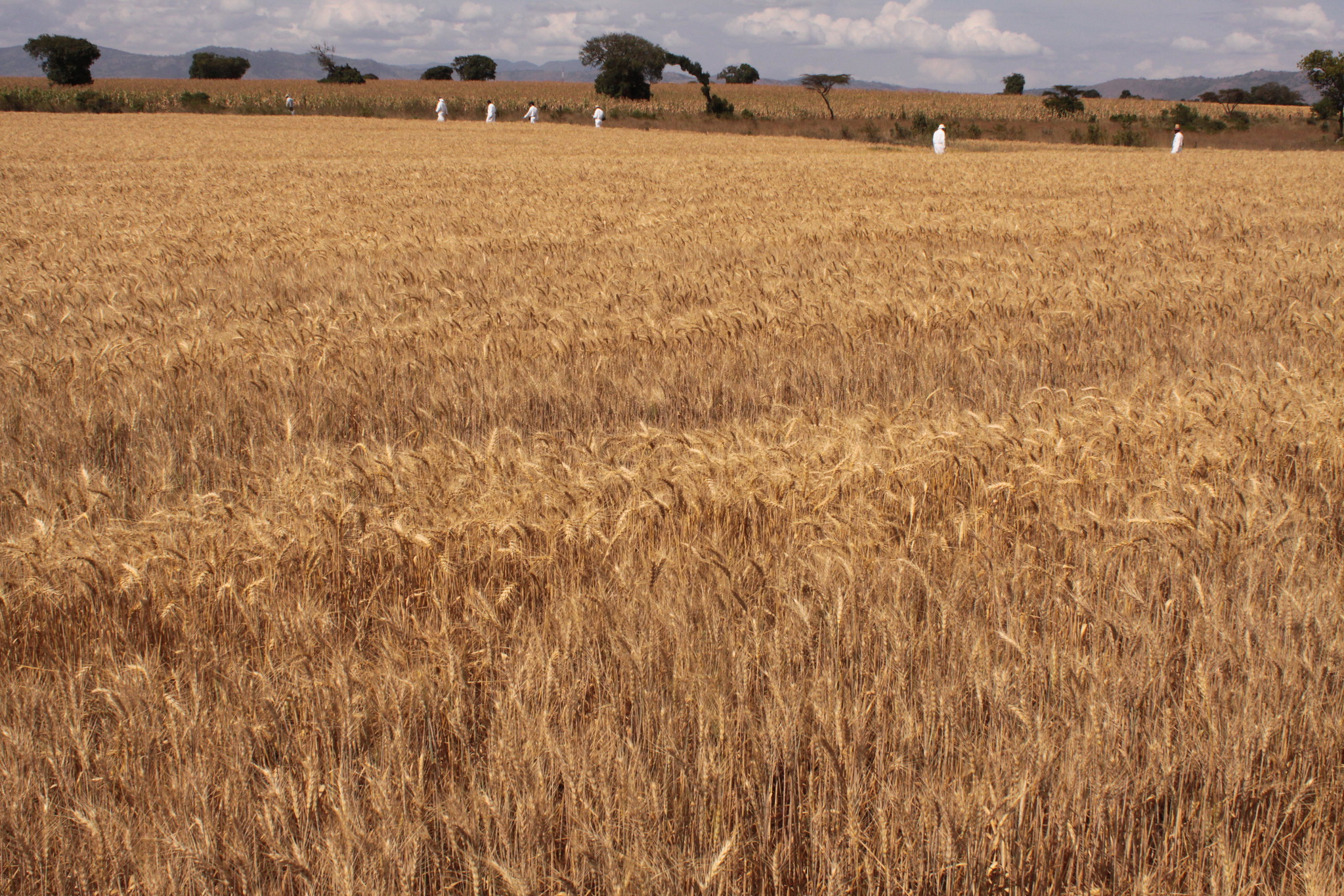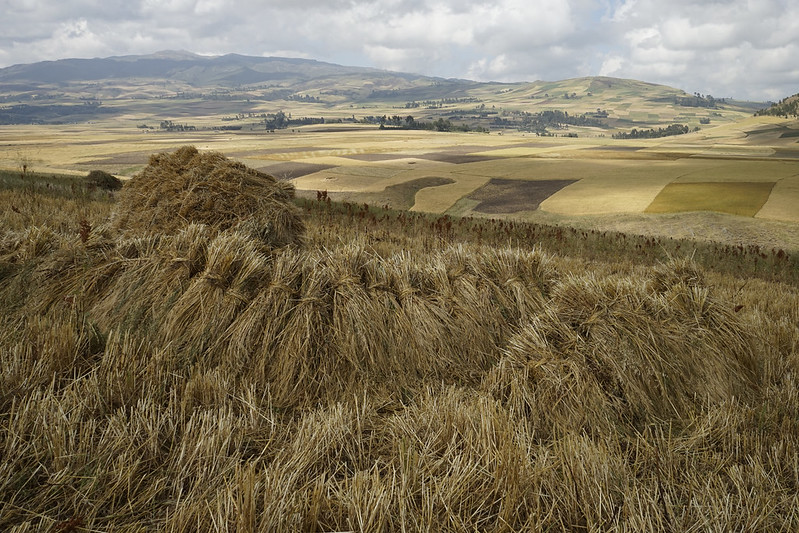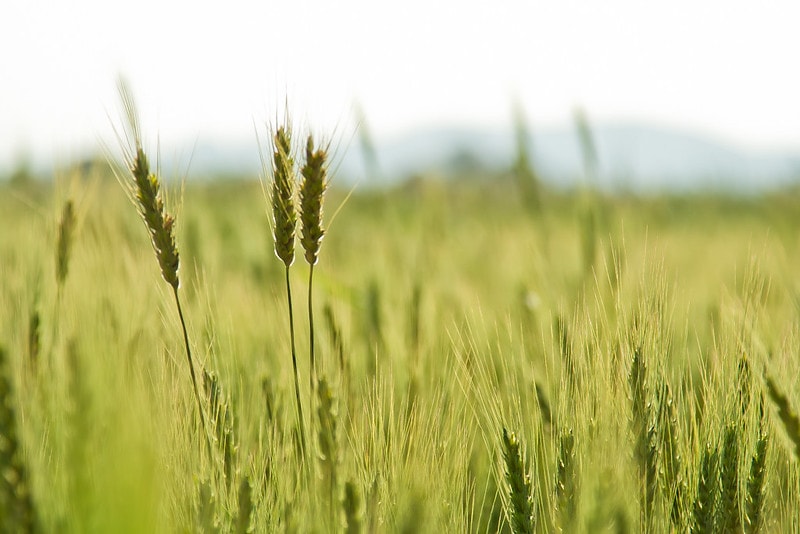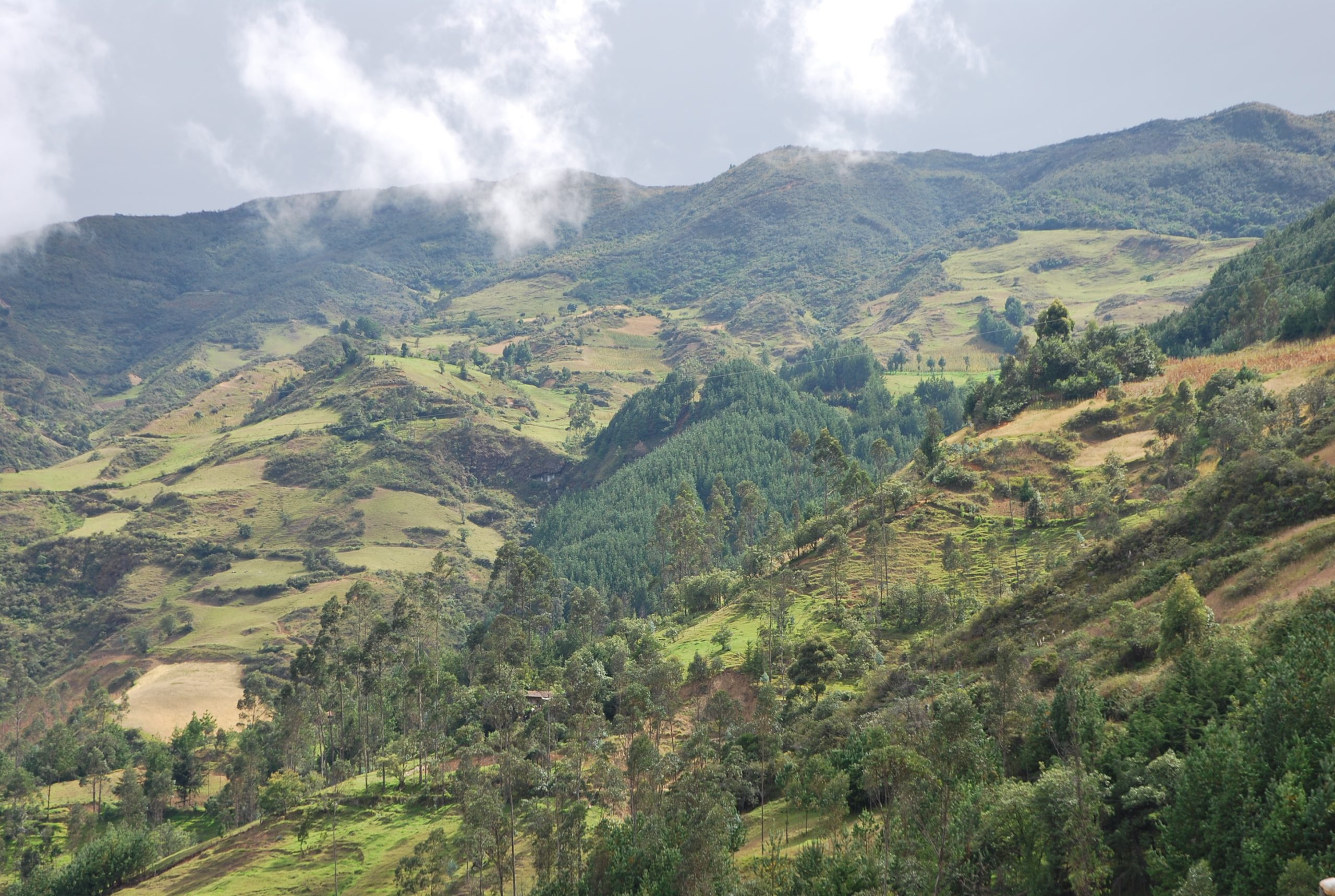
The East African wheat breeding pipeline aims to improve wheat varieties and contribute to regional food security by ensuring a stable and resilient wheat supply. In 2022, CIMMYT, in partnership with the Kenya Agriculture and Livestock Research Organization (KALRO) established a Joint Breeding Program in Njoro, a town southwest of the Rift Valley in Kenya. This was one of the first integrated breeding pipelines between CGIAR and National Agricultural Research and Extension Systems (NARES) partners.
Over the last three decades, genetic trials of over 77 varieties have been conducted in several regions. In East Africa, an expanded testing network that spans over multiple research institutes in Kenya and Ethiopia has been established for Stage 1 and Stage 2 trials in network countries. This makes the pipeline a powerful driver of positive impacts, rapidly enhancing both farm productivity and production in target regions. In Kenya specifically, a genetic gain trial was conducted at two sites in 2023 with the Stage 1 trials evaluated across eight locations. These are being distributed to NARES partners to establish correlations between the breeding site in Kenya and the Target Population of Environments (TPEs) in the E&SSA regions. This breeding pipeline demarcates the population improvement from product development. Other areas in the trials include the enhancement of genetic diversity to build resilience, adaptability, and quality enhancement to meet market and consumer demands.
The trial will continue in 2024 and 2025 to establish a baseline for genetic gains and to enable the assessment of the breeding pipeline’s progress in the coming years. The first cohort of pipeline materials (250 crosses) has been advanced to F2 generation and will be ready for distribution to E&SSA partners in 2025.
Accelerated breeding
The anticipation is that accelerated breeding techniques will be implemented in Kenya by incorporating a three-year rapid generation bulk advancement (RGBA) scheme aimed at diminishing the time necessary for variety development and release. This collaborative effort encompasses various activities, including joint crossing block, generation advancement, yield testing, and population improvement. The three-year RGBA scheme, coupled with data-driven selection utilizing advanced data analytics (GEBV, SI) and genomic selection approaches, is expected to play a pivotal role in facilitating informed breeding decisions in the East African region.

Varietal improvement
The project aims to develop and release improved wheat varieties that are well adapted to the East African agroecological conditions. The Kenyan environment closely mirrors wheat-growing conditions in Ethiopia, Tanzania, Uganda, Rwanda, and Burundi, and spillover impacts to sub-Saharan countries such as Zambia and Zimbabwe. This strategic alignment with local conditions and close cooperation with NARES partner organizations has proven to be very effective in addressing critical gaps, including high-yield potential, disease resistance, and climate resilience, and aligns with CIMMYT’s overall wheat strategy for Africa.
Enhanced disease resistance
Kenya stands out as a hotspot for rust diseases, showcasing notable diversity in stem rust variants (ug99) and yellow rust. The virulence spectrums of these diseases differ from those found in Mexico, posing challenges to effective breeding strategies. It is expected that the breeding pipeline will effectively tackle these challenges as well as those associated with fusarium, Septoria, and wheat blast, which are on the rise in African environments.
Climate adaptation
The East African wheat breeding pipeline is committed to breeding wheat varieties that can thrive in changing climatic conditions, including heat and drought tolerance, and expanding testing in marginal rainfed environments experiencing heat and drought stress.
Through the support of our partners and funders from the Bill and Melinda Gates Foundation, Foundation for Food and Agriculture Research (FFAR), and Foreign, Commonwealth and Development Office FCDO, the following achievements can be reported:
Regional collaboration and cooperation
For over four decades, the enduring collaboration with KALRO has yielded significant successes including the operation of the largest phenotyping platform for stem rust and various diseases. The Mexico-Kenya shuttle breeding program, incorporating Ug99 resistance, has successfully countered the threat of stem rust by releasing over 200 varieties in targeted regions and advancing the East African wheat breeding pipeline. The plan is to replicate these accomplishments in other target regions through the E&SSA network. To address limitations in KALRO’s breeding program and to conduct standardized trials, a strategic partnership with a private seed company Agventure Cereal Growers Association has been established. This collaboration will facilitate yield testing at multiple sites in Kenya to identify lines with superior performance for the East African region. So far, lines exhibiting high yield potential of up to 8 tons/ha, even under rain-fed environments, have been identified. The collaborative efforts are already making a noticeable impact, as evidenced by reports indicating increased adoption of zero-tillage practices among farmers. This shift has proven beneficial, especially during years marked by heat and drought challenges, resulting in higher returns for these farmers.
Increased capacity of national programs
From 1-13 October 2023, the AGGMW project held a training program on “Enhancing Wheat Disease Early Warning Systems, Germplasm Evaluation, Selection, and Tools for Improving Wheat Breeding Pipelines”. The course which brought together 33 participants from over 13 countries was held at the KALRO station in Njoro- Kenya. The comprehensive program covered a wide range of crucial subjects in the field of wheat breeding and research. Topics included breeding methodologies, experimental design, data collection, statistical analysis, and advanced techniques such as genomic selection. Participants also engaged in practical hands-on data analysis, explored rust pathology, and delved into early warning systems. Moreover, they had the opportunity for direct evaluation and selection of breeding materials. The course aimed to equip participants with a diverse skill set and knowledge base to enhance their contributions to the field of wheat breeding and research.
Other initiatives supporting the breeding pipeline include CGIAR programs, Accelerated Breeding and Crops to End Hunger. This multi-faceted approach within the breeding pipeline underpins the importance of fostering regional collaboration, knowledge sharing, and strategic investments in enhancing wheat production and addressing critical challenges in the region.

 Gender equality, youth and social inclusion
Gender equality, youth and social inclusion 
